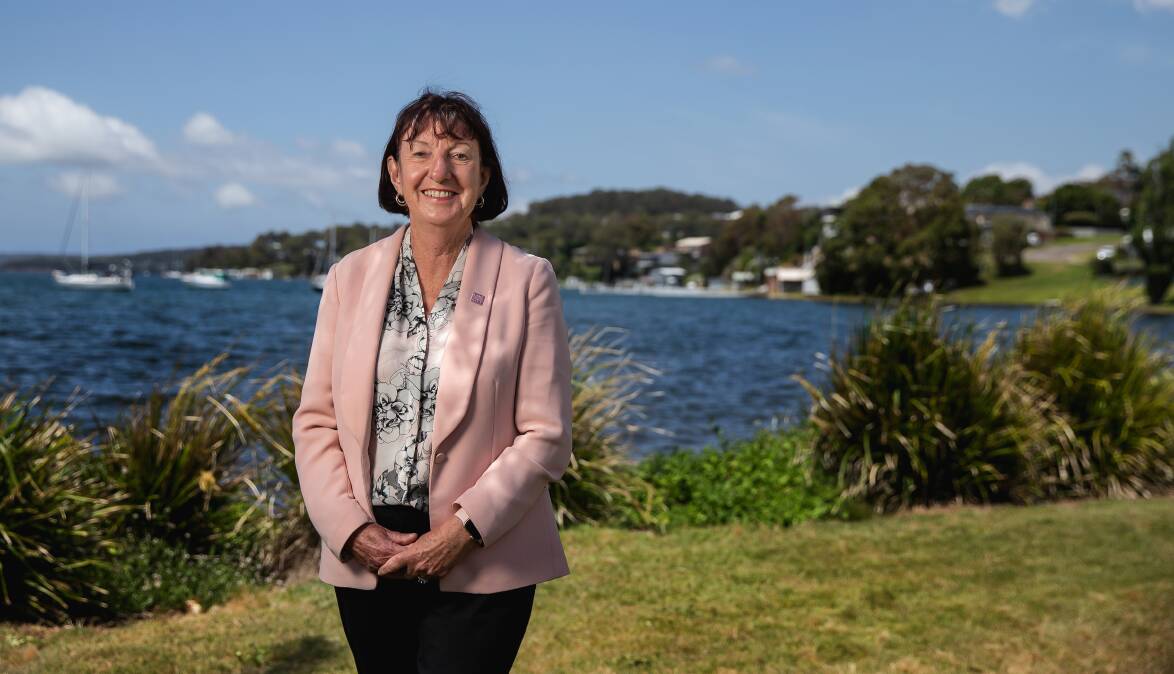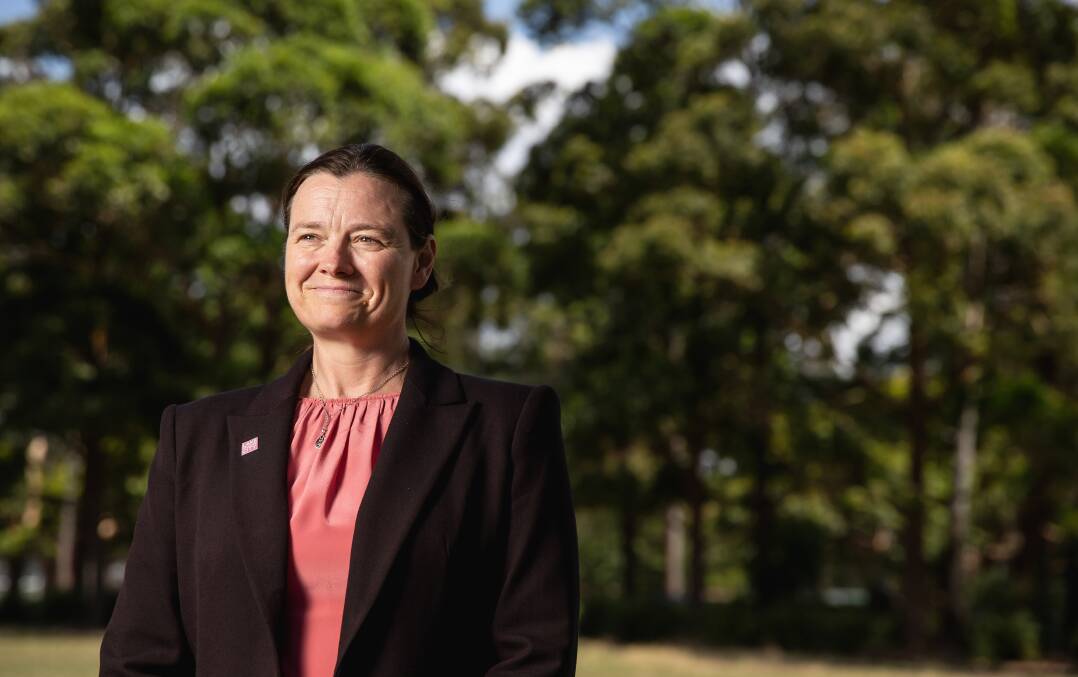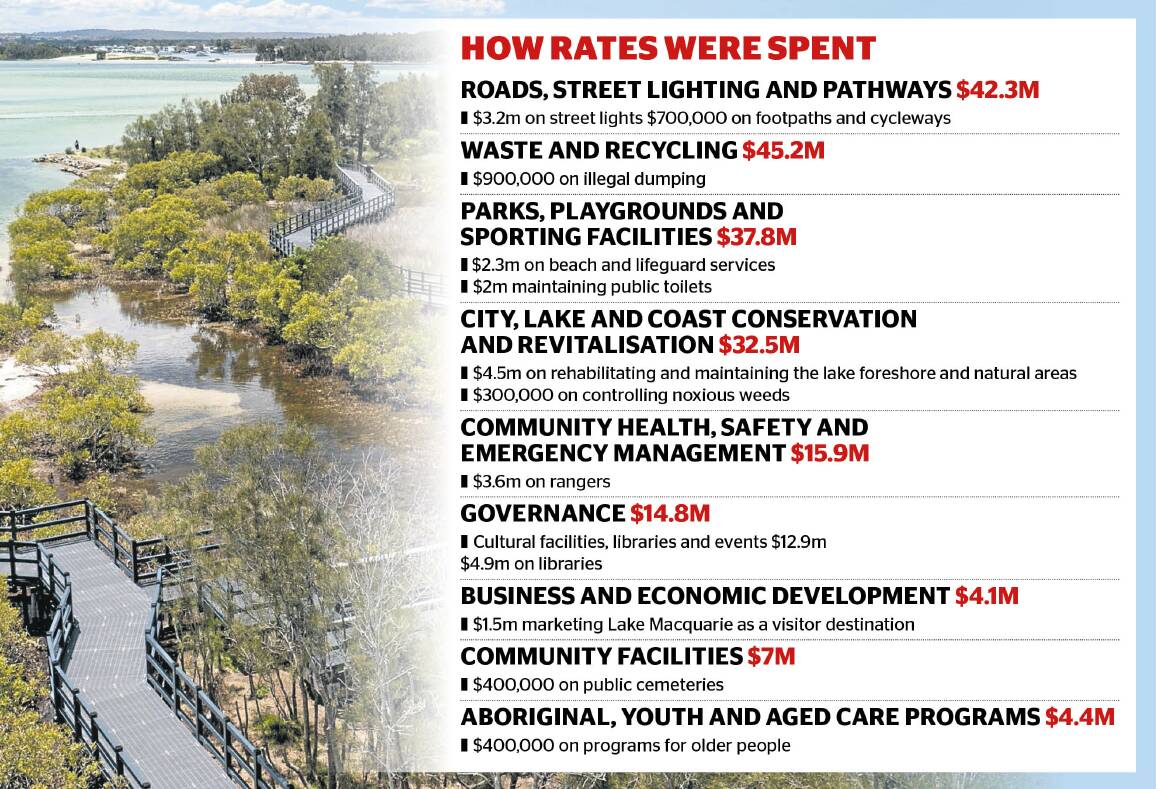
LAKE Macquarie City Council is ready to come out swinging.
The quiet achiever is leaving its 'go along to get along' attitude in 2022, ready to make a name for itself as the state's regional powerhouse.
The region generates $22.9 billion in economic revenue, making up 18.4 per cent of the Hunter's output, and chief executive Morven Cameron said it's high time that contribution was matched with state government investment.
"We tend to just get on with it," she said.
"We've got enough economic vibrancy with the port and coal exports that as a region we can do a lot for ourselves, and I think we haven't been great as a region at singing from the rooftops about what we are good at.
"It's time to put ourselves forward as the regional powerhouse of NSW, we as a region haven't worked hard enough to tell that story to Sydney, Macquarie Street and quite frankly, Australia."
Home to 68,700 jobs, the council has seen a steady increase in its gross regional product across the last six years and represents 1.9 per cent of the state's net wealth, according to REMPLAN Economy.
With about 14,000 small to medium businesses, Lake Macquarie's major industries include construction, manufacturing, retail, health care, social assistance and education and training.
And, as the Hunter faces a shift from coal mining and coalfired power generation, the council is turning its attention to advanced manufacturing, creative industries and adventure tourism.
Mayor Kay Fraser said the region punched "well and truly above its weight" and had long been overlooked by the state government when it came to dishing out infrastructure funding.
"If you look at the investment here, we've been promised a number of things from the state government," she said.
"The Hillsborough Road upgrade hasn't happened, Speers Point roundabout hasn't happened, upgrades to Morisset, Fassifern and Cardiff train stations hasn't happened, dredging hasn't happened.
"The state government has pulled the handbrake not just on us as a city but the Hunter region, it's underestimated us as a powerhouse and we are growing and doing it on our own."
The council has historically been seen as Newcastle's poor little sister and Sydney's distant cousin - which comes down to being misunderstood, Ms Cameron said.
"I think our proximity to Sydney is such that we're kind of too close in some ways and far enough away that we fly under the radar," she said.
"The other side of that is that now as we grow, modernise and become more vibrant, that 'getting on with it' historical attitude is starting to come at a cost to our residents who are missing out on infrastructure that they need.

"The money that flows to us as a region for infrastructure needs to be revisited."
The council achieved 92 per cent of the goals it set out for itself in 2021-2022 and invested $103.3 million in capital projects - $43 million of that on new assets and $60 million on upgrades.
It received $66 million in grants and contributions for capital works, an increase of $12.3 million against the 2021-2022 budget.
In the newly elected councils first year, Cr Fraser said it made some major moves, including approving the $235m Morisset golf course redevelopment, known as Cedar Mill.
"We're a council that's really proactive, who are all there for the right reasons and want to see Lake Mac on the map," she said.
"I want to see it as the number one place to live in NSW."
Ms Cameron said the future was exciting, and it was time the state and federal governments saw the possibilities.
As the country transitions away from coal, she said Lake Macquarie was well-positioned as a renewable energy hub.
"I'm going to be political here and I don't like being political," she said.
"The opportunities around hydrogen and alternative energy sources as well as coal are starting to be realised more broadly and potentially even nationally.
"For me, it's a really exciting time to be in this region, to be watching and be part of the conversation to say 'we can actually deliver this'.
"We've got the skills, we've got a university and an entrepreneurial mindset.
"I'm hoping that in the next state election, regardless of who wins, they start to understand and appreciate the capability and potential of this region, because it's massive."
As with most regional councils, 2022 came with a COVID-19 hangover, a surprisingly low rate peg and unparalleled road carnage as a result of widespread floods.
Facing a 0.7 per cent rate variation in April, the council predicted it would be $30 million out of pocket in the next decade.
Managing expectations with the council's purse strings is a balancing act, Ms Cameron said.
"We're continually inside the organisation looking for efficiencies and better ways to do things, because it's the only way we can continue to provide services when our rates are going up very slowly at a low trajectory and costs are going up at a much steeper trajectory," she said.
"The bigger threat to councils is the way we balance a tough year or a hard year is we spend less of our depreciation on maintenance and repairs.
"That's survivable for a year, maybe two, but if you do that repeatedly then the cost to repair your road, bridge or playground is a lot more because you've let it go."
In 2021-2022 it spent $43.2 million building new roads and upgrading or replacing old ones.

Wet weather early in the year saw maintenance crews busy dealing with more than 2100 requests for repairs to potholes and damage.
The council still managed to complete the Weir Bridge and significant road rehabilitation at Thomas Street, Cardiff and Ruttleys Road, Wyee.
Perhaps its biggest win was snagging $76 million in state and federal government funding to upgrade Mandalong Road at Morisset, a major pinch point for locals.
Ms Cameron said there were financial challenges ahead, with Morisset's rapid growth at the centre.
"There will be a huge influx in population so we need to make sure we have the parks, playgrounds and even main street of Morisset modernised to meet with the investment going on there," she said.
"There's always stringent financial management and that's exactly how we should be when we're dealing with the community's money."
Historically, the western side of the lake has had its own gripes with the east, as suburbs complain they haven't gotten their fair share.
Ms Cameron said having done the numbers she's confident the western side of the lake is getting significant investment.
"Some of that is council investment, some is private but in a city of our nature every community will tell you that the community on the other side of the lake gets it all," she said.
Next year, the council forecasts an operating loss before capital revenue of $3.5 million.
It spent $98.8 million on employee costs from 2021-2022, including $1.8 million alone on senior staff and fringe benefits.
The council employs about 1130 people, its turnover rate climbing slightly in the last year.
Another $705,338 went to elected official expenses, $90,334 to the mayor and $403,397 to councillors.
Ms Cameron said that's a figure she's comfortable with.
"Ask anyone who runs a business how important good, quality, professional leadership is and what percentage of their costs in the business are spent on leadership - take my two million as a percentage of $420 million and I think we're doing exceptionally well," she said.
"If you benchmark our costs against any other $420 million business which had its shares on the share market, I can absolutely assure you that would probably have another zero on it."
The council's relationship with its neighbour City of Newcastle will be even more important as Lake Macquarie looks to grow.
"We try not to set ourselves apart from Newcastle, we try to complement one another but looking forward for the last five years we've been talking about the economic makeup and diversity of this city changing dramatically and it has," Ms Cameron said.
While she couldn't divulge where yet, Ms Cameron said a number of big parcels of land could become exciting economic centres in the future.
Advanced manufacturing, tech start-ups, medical manufacturing and energy production and transportation are likely growth areas.
"Every piece of research about regions whose economies have gone through a diverse change say find your strengths, stay with them and adapt them," Ms Cameron said.
"The idea that you would decide to be something else doesn't make sense, so as a city and a region we're really focusing on that."
WHAT DO YOU THINK? We've made it a whole lot easier for you to have your say. Our new comment platform requires only one log-in to access articles and to join the discussion on the Newcastle Herald website. Find out how to register so you can enjoy civil, friendly and engaging discussions. Sign up for a subscription here.







